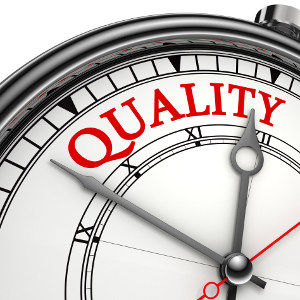|
|
The case: The customer is a big consulting company. The company decided to implemement Scrum initially on a pilot project, and then on the others company's projects. |
|
The project: We started by explaining the Management the philosophy and principles of Scrum. We helped the company to select the pilot Scrum Team and trained the Team on Scrum. At the end of the training phase we coached the Product Owner, Scrum Master and Team. After some Sprints, the pilot Scrum Team was able to proceed autonomously while our project focused on the scalability of the approach to other project initiatives. |
|
|
|
The case: The customer is a big consulting company. The company has decided to introduce the Scrum methodology for their information systems projects. |
|
The project: First we trained a large group of consultants on the framework Scrum and certified some PSM-I Scrum Masters. Afterwards we were asked for support in the introduction of Scrum in their proposal model. We have redefined the technical and economical proposal structure, and introduced the Agile principles in the offering model. |
|
|
|
The case: the customer is a leading Italian company in the Energy & Utilities industry. The company has decided to improve the competencies of their Business Analysts (about 500 people). Business Analysis is considered an essential discipline for competing in the market in the coming years and to create innovation. We were requested to make an assessment of the current skills of Business Analysts and identify specific development paths. |
|
The Project: in the first phase we assessed the skills of the Business Analysts, aimed at understanding the current status. For this purpose we used the IIBA Business Analysis Competency Model, properly tailored to the characteristics of the organization. The assessment was proposed through our proprietary web platform. In the second phase we designed the training paths. It is expected that in the future some Business Analysts will apply for the IIBA Certifications. |
|
|
|
The case: The customer is a leading Italian company in the Telco Industry. The company has decide to improve the competencies of some high potential project and program managers, to move towards the Business Analysis competencies. |
|
The Project: We were asked in the first phase to prepare these program and project managers for the CBAP certification. A class of 16 Project Managers was organized, and all participants got the CBAP certification. In the second phase we supported the company in creating and introducing the new role of Project Business Manager, by merging the PMI standard for Project Management with the IIBA standard for Business Analysis. This project has become a world wide case study. |
|
|
|
The case: The client is a University Library who has decided to understand the application of Design Thinking to innovate their services and improve the Customer Experience. |
|
The Project: We organized a in 4 half days a workshop involving a multidisciplinary Team in all the sectors of the Library. Applying the schema proposed by the University of Stanford, we analyzed the Customer Journey and identified some projects aimed at improving the visibility of the library, the relationship with the customers (students, teachers, researchers, etc.), the reorganization of some physical spaces. The Customer has decided to officially adopt the process within it. |
|
|
|
The case: The company is a big consulting firm. The Quality function has requested an assessment of the current Project Management System to align with the standard ISO21500. |
|
The project: We assessed the Project Management System against the standard ISO21500. The assessment focused mainly on the processes, but we provided feedback also on the tools and the comptencies of Project Managers. Our consultants have an in-depth knowledge of ISO standards and have participated in drafting the Italian rules by UNI. |
|
|
|
The case: The customer is a braking manufacturing systems. A Project Management organizational unit has just been created and needs to improve the Project Managers' competencies and set-up a methodology for managing projects at enterprise wide level. Problems occur in some projects, mainly in the assignment of responsibilities, in the communication among the departments of the company and in the relationship with the clients; the status review meetings with the customer are often chaotic and unproductive. |
|
The project: At start we performed an organizational assessment aimed at understanding the context of the company, the processes and the status of the current project management methodology. The assessment reported some major issues related to the planning and control processes. Then we selected a project pilot to define and implement the corrective actions. Corrective actions were divided into "QuickWins" (redefine the WBS, assign roles and responsibilities and restructure the reporting model together with the client), "structural" (improve the internal and external communication) and "support" (supporting the project manager in the implementation of Project Management Methodology). After the pilot phase, the company decided to extend the methodology to all projects. The company improved the performances of all projects. |
|
|
|
The case: the customer is a Company leader in the Telecommunications industry, and is part of an international group. The company has in place a program to improve efficiency, rationalize and integrate through the reengineering of the "core" processes at corporate level and the replacement of the current information technology solutions. We have been requested to provide expert support to the Program Management activities. |
|
The project: we provided the experience and knowledge to set up the program and to establish and support the Program Management Office. We supported the Program Director, the Program Manager and the Head of the PMO in the definition of the approach and the governance structure of the program. Given the complexity of the initiative, the large number of stakeholders involved and the request of the Mother company to apply the guidelines of PMI, it was decided to produce the following planning deliverables: the Program Management Plan, the Risk Management Plan, the Communication Management Plan and the Procurement Management Plan. We coached and trained a large group of users, organizing workshops and working together with the stakeholders of the program to develop the program plan and the program control tools and procedures. We help to set up the Primavera Enterprise tool which supported the development of program key performance indicators. We primarily focused on program planning in the medium and short term level, as well as planning the single projects. We organized workshops with the stakeholders aimed at setting up the operating workplans and the periodic monitoring for the control of milestones, identifying and activating the necessary corrective and preventive actions. The program methodology is currently being used in other programs and corporate projects. |
|
|
|
The case: the customer is a big company in the Information and Communication Technology industry, that carries out ICT projects for several clients. The company currently run at the same time more than 200 projects and several teams are spread in four locations in Italy. Since the company has launched a project to certificate the quality of its processes, it is mandatory to define a unique corporate project management methodology, and a unique information system for collecting and disseminating the information to the project teams. |
|
The project: initially performed an organizational assessment at Enterprise level using a proprietary model, aimed at understanding the context of the company and the characteristics of the projects. Then we designed the Enterprise Project Management methodology by following a continuous improvement approach, starting with implementing some QuickWins identified during the assessment phase. The methodology was first tested on some company project and then rolled out to all company projects. As for the Knowledge Management and Team Collaboration system, we identified the requirements and assessed the main market applications using a proprietary assessment model. Then we managed the project for the implementation of the new system. The new Knowledge Management and Team Collaboration system is now used by over 2000 employees. |
|
|
|
The case: The customer is Telecommunication Company that started a Transformation Program (about 18 billions of Euro) and SAP ERP Implementation. The Managing Director, IT Director, Program Manager and Business Managers requested a qualified support for the internal PMO (composed by the customer's employees) for the activities of Governance, Financing, Procurement Management, Program and Projects Management in order to guarantee the delivery of the desired outcomes on time and on budget. |
|
The project: We involved two Senior Program Manager who supported the Program Manager for the PMO Start up, the management of the PMO, the monitoring of projects in charge of Suppliers. We defined the PMO and Program Organization supporting the Customer Program Manager, applying the Program Management and the Project Management methodology in accordance with the PMI standards, and selected and implemented the supporting collaborative tools for PM and Communication. We supported the PMO for two years in the two main phases of the program. In these two years we formed the company's internal resources in order to manage the PMO autonomously, and the customer was able to run the PMO all alone on the third phase of the program. |
|
|
|
The case: The Cruise Business is experiencing a deeply transformation, business and competition grow and that requires new strategies, activation of new initiatives and capabilities to manage and optimize the right portfolio in order to achieve business value. For these reasons our customer, leader in this sector, wanted to start a PMO. We were requested to prepare a Business Case for the start-up and development of their PMO. |
| The project: We involved one Senior Program Manager and we worked side-by-side with the IT PMO Director applying our PMO Assessment methodology and our PM&BA – Dynamic Duo methodology and International Maturity Models as reference. The Business Analysis and Project management maturity level showed that Company needed an advanced PMO for Business Strategy alignment. For this reason we applied a Continue Improvement Approach organized in 3 Stage: Readiness (PMO Strategy), Implementation (Qwickwin projects), Sustainability (Assessment Improvement). We performed the AS-IS Analysis, TO-BE Design, the GAP Analysis and defined the PMO Model TO BE, identifying the main clusters (Organization, Functions, Roles, Responsibilities, Numbers PMO staff (FTE), Project Managers and Business Analysts). We developed the PMO Implementation Plan, Benefit & Cost Analysis, the Budget for the next 3 Years and we delivered the PMO Business Case presentation to the Steering Committee. We also defined the Portfolio Management Governance and the Project Management Kit Base – processes and tools for Project Managers and Business Analysts, and performed the training to the PMO staff. |
|
|
|
The case: The customer is a company that won a contract for the construction of many high-speed trains in the next 10 years. The project involved three production factories, with offices in Italy, Germany and UK. The Project Manager has requested a qualified support for the activities of Initiating, Planning and Control the project, in accordance with internationally recognized project management standards. |
| The project: We have involved one Senior Project Manager who designed and implemented the project PMO to support the Project Manager during the project. The PMO defined the Project Management methodology in accordance with the PMI standards, and selected and implemented the supporting tools. In parallel, we formed also some company's internal resources to manage the PMO autonomously after the start-up. After nearly one year of mentoring and training these PMO resources, the customer was able to perform the PMO tasks all alone. |
|
|
|
The case: The client is the Library of an important Italian university. The client asked us to organize a PMO to support the project initiatives, and to introduce some tools to support the projects. |
|
The project: We supported the client with a Senior Project Manager who designed and implemented the PMO. We have defined the organizational roles on the projects, and set up a Project Management methodology mostly oriented to the Agile approaches. As tools we have introduced a document system and an agile planning tool, preferring the simplicity of use. We raised the Project Management skills of Project Leaders. We started with a pilot PMO that will now be extended to all projects. |
|
|
|
The case: The customer is a large insurance company that has launched a program to improve efficiency in the area of claims management. The program includes several projects and activities, including the implementation of the new information system for the management of claims, the implementation of the CARD regulation, the reorganization of the agencies, the procurement of new hardware. 12 teams were involved in this program. It was necessary to organize a Program Management Office to support the Program Manager in the coordination of the various project groups. |
|
The project: We focused in the start-up and management of a Program Management Office, by supporting directly the Program Manager. At the beginning we defined the processes and procedures for starting, planning, executing, monitoring and controlling and closing projects, as well as the processes and procedures for project coordination. Then we defined the communication and reporting system towards the Program Manager and the Steering Committee. Finally, we provided the tools, templates to be used in the project order to ensure consistency in the method of work and the information content. The program involved more than 50 people for a period of 14 months. |
|














